
Guadalupe: The Hidden Gem of São Tomé and Príncipe
Discover the serene beauty and rich culture of Guadalupe in São Tomé and Príncipe, where pristine beaches, vibrant markets, and lush landscapes await your exploration.
Guadalupe, a charming town in São Tomé and Príncipe, offers a unique blend of natural beauty and rich culture. Nestled amidst lush greenery and exotic flora, this quaint town is an ideal destination for those seeking tranquility. The town is surrounded by pristine beaches, making it a paradise for beach lovers and adventure enthusiasts alike. The local markets in Guadalupe are a vibrant display of the island's culture. Here, you can find an array of tropical fruits, fresh seafood, and traditional crafts. The warm and welcoming locals add to the town's charm, making every visitor feel at home. The town's colonial architecture and historical landmarks provide a glimpse into its past, offering a rich tapestry of stories waiting to be discovered. For nature enthusiasts, the nearby Obo National Park is a must-visit. It is home to diverse wildlife and offers hiking trails that lead to breathtaking views. Bird watchers will be thrilled by the variety of exotic birds found in this region. Whether you are exploring the town's history, indulging in local cuisine, or simply relaxing on the beach, Guadalupe promises an unforgettable experience.
Local tips in Guadalupe
- Visit the local markets early in the morning for the freshest produce and seafood.
- Hire a local guide for a more insightful experience of Obo National Park.
- Try the traditional dish called 'Calulu' at a local eatery for an authentic taste of the island.
- Bring cash as many local shops and markets do not accept credit cards.
- Pack light, breathable clothing and comfortable walking shoes for exploring the lush landscapes.
Guadalupe: The Hidden Gem of São Tomé and Príncipe
Guadalupe, a charming town in São Tomé and Príncipe, offers a unique blend of natural beauty and rich culture. Nestled amidst lush greenery and exotic flora, this quaint town is an ideal destination for those seeking tranquility. The town is surrounded by pristine beaches, making it a paradise for beach lovers and adventure enthusiasts alike. The local markets in Guadalupe are a vibrant display of the island's culture. Here, you can find an array of tropical fruits, fresh seafood, and traditional crafts. The warm and welcoming locals add to the town's charm, making every visitor feel at home. The town's colonial architecture and historical landmarks provide a glimpse into its past, offering a rich tapestry of stories waiting to be discovered. For nature enthusiasts, the nearby Obo National Park is a must-visit. It is home to diverse wildlife and offers hiking trails that lead to breathtaking views. Bird watchers will be thrilled by the variety of exotic birds found in this region. Whether you are exploring the town's history, indulging in local cuisine, or simply relaxing on the beach, Guadalupe promises an unforgettable experience.
When is the best time to go to Guadalupe?
Iconic landmarks you can’t miss
Papa-Figo
Discover the vibrant flavors of São Tomé at Papa-Figo, where culinary excellence meets a warm, welcoming atmosphere.
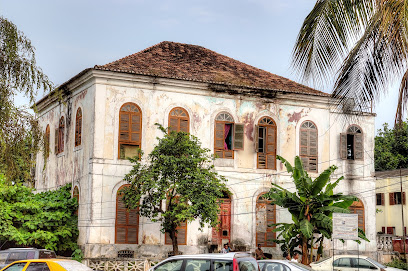
Omali São Tomé
Experience ultimate luxury and natural beauty at Omali São Tomé, where relaxation meets vibrant local culture on Praia do Lagarto.
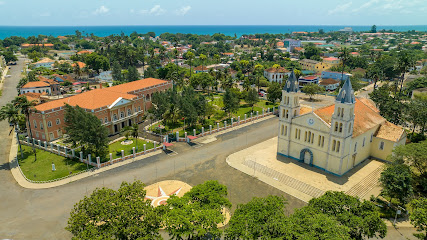
Saint Nicholas Waterfall
Explore the enchanting Saint Nicholas Waterfall in Monte Café, a stunning natural wonder surrounded by lush landscapes, perfect for relaxation and adventure.
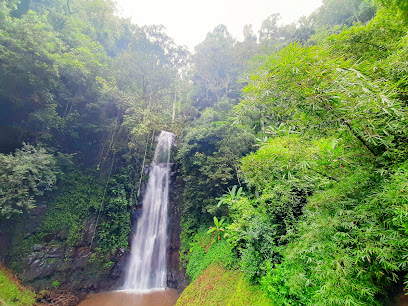
Equator Landmark
Experience the Equator Landmark in Porto Alegre, a stunning historical site that bridges two hemispheres and offers breathtaking views and rich cultural insights.
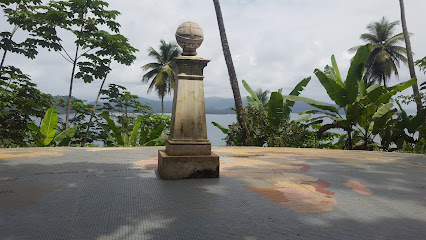
Sao Tome Island
Explore São Tomé Island, a tropical paradise filled with lush landscapes, rich culture, and breathtaking biodiversity, perfect for your next adventure.
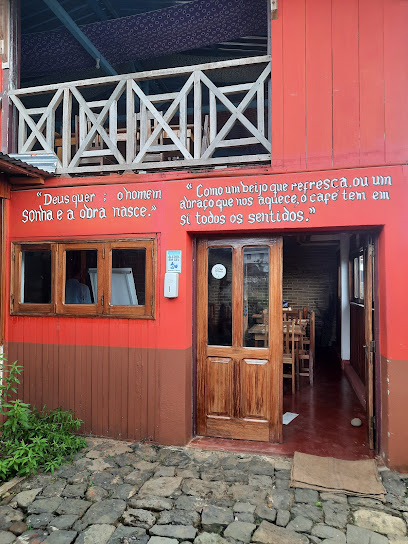
Jardim Botânico do Bom Sucesso
Explore the captivating beauty of Jardim Botânico do Bom Sucesso in Milagrosa, a tranquil botanical garden perfect for nature lovers and serene getaways.
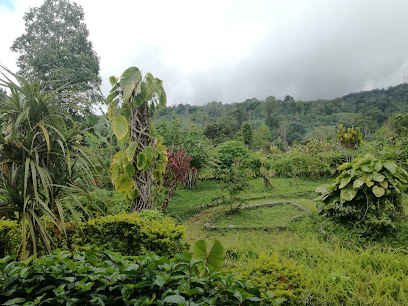
Claudio Corallo - Cacao & Caffe São Tomé e Príncipe
Experience the rich flavors of São Tomé's finest artisanal chocolates at Claudio Corallo, a must-visit for chocolate lovers and culinary enthusiasts.
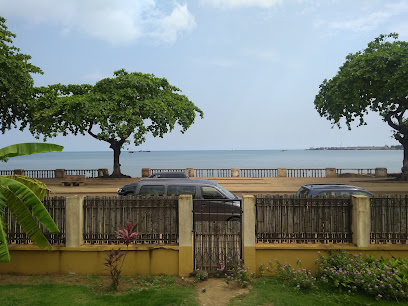
Praia das Sete Ondas
Experience the tranquility and beauty of Praia das Sete Ondas, a breathtaking beach in São Tomé and Príncipe where adventure and relaxation await.
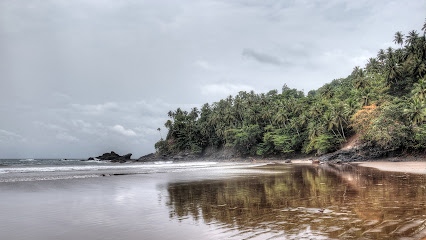
São Sebastião Museum
Explore the captivating history and culture of São Tomé at the São Sebastião Museum, where heritage meets the vibrant spirit of the island.
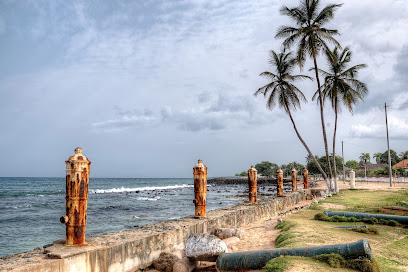
Monte Mar Restaurante São Tomé
Discover the culinary treasures of São Tomé at Monte Mar Restaurante, where fresh seafood meets breathtaking ocean views for an unforgettable dining experience.
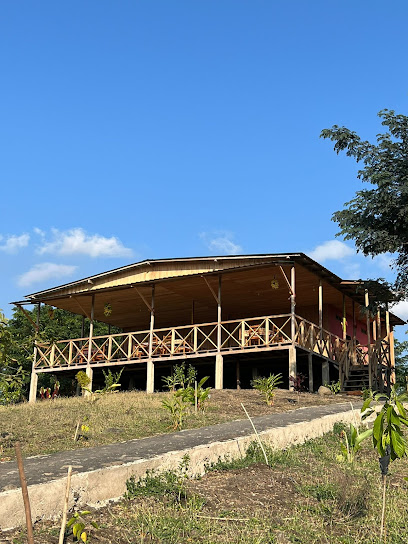
90 Graus Esplanada Bar
Experience the best of São Tomé with delicious pizzas and local flavors at 90 Graus Esplanada Bar, a must-visit dining destination for travelers.
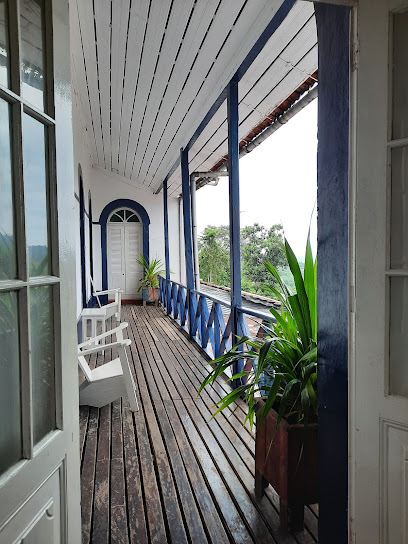
Aeroporto Internacional de São Tomé e Príncipe
Discover the enchanting islands of São Tomé and Príncipe through the Aeroporto Internacional, your gateway to tropical adventures and cultural richness.
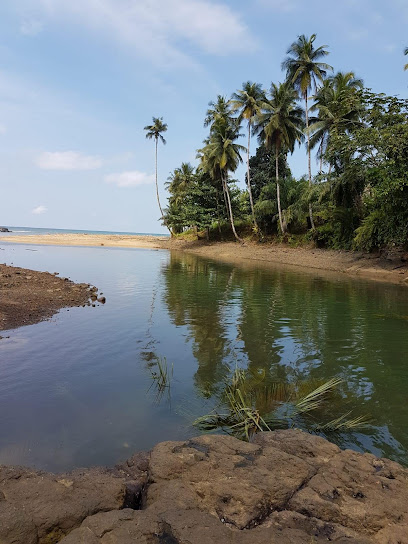
Praia dos Tamarindos
Experience the tranquil beauty of Praia dos Tamarindos, a hidden gem in São Tomé and Príncipe, perfect for relaxation and adventure.
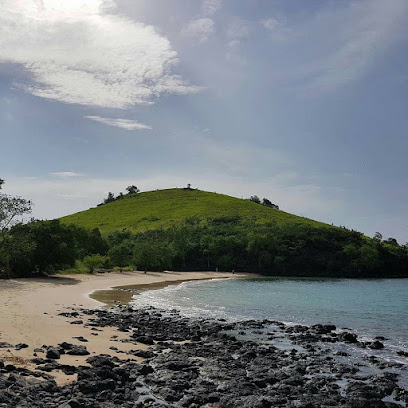
São Tomé Paradise Tours
Explore the enchanting landscapes and rich culture of São Tomé and Príncipe with São Tomé Paradise Tours, your adventure begins here.
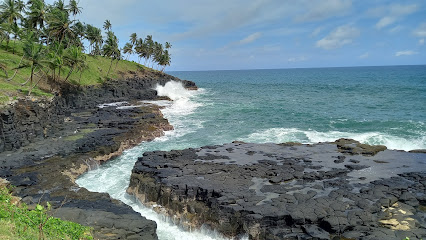
Roça Água-Izé
Immerse yourself in the rich history and breathtaking landscapes of Roça Água-Izé, an open-air museum in São Tomé showcasing the island's cultural heritage.
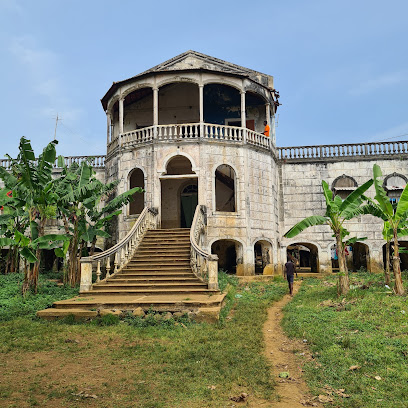
Unmissable attractions to see
Saint Nicholas Waterfall
Experience the breathtaking beauty of Saint Nicholas Waterfall in Monte Café, a must-visit scenic spot for nature lovers and adventure seekers.
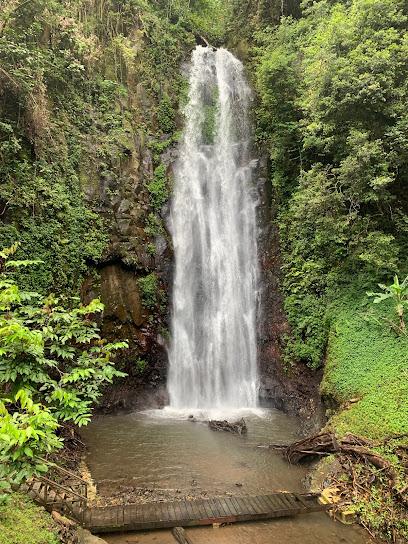
Hellmouth
Explore the mystique of Hellmouth, a stunning geological attraction in Ribeira Afonso, perfect for adventure seekers and nature lovers alike.
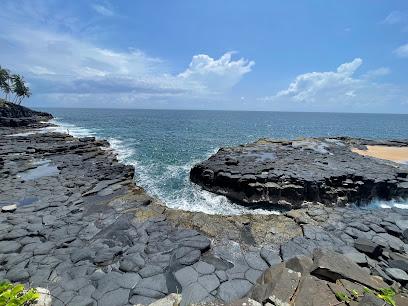
Museu Do Cafe
Explore the captivating history of coffee at Museu Do Cafe in Monte Café, where cultural heritage and aromatic experiences await.
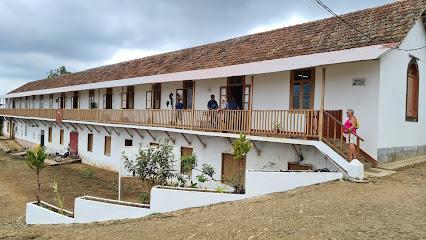
Jardim Botânico do Bom Sucesso
Explore the enchanting Jardim Botânico do Bom Sucesso, a serene botanical garden in Milagrosa, showcasing vibrant flora and lush landscapes.
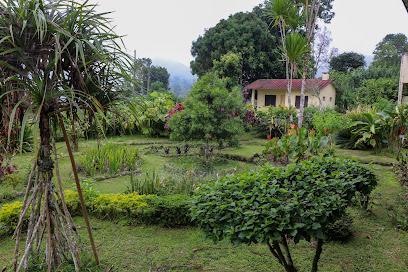
São Sebastião Museum
Discover the captivating history and culture of São Tomé at the São Sebastião Museum, a national treasure showcasing the island's rich heritage.
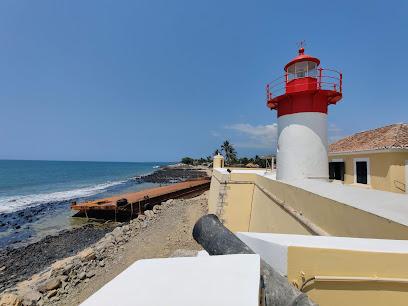
Rolas Island
Explore the serene beauty of Rolas Island, a tropical paradise with stunning beaches, rich marine life, and warm local culture.
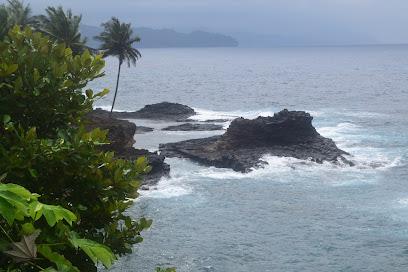
Praia das Sete Ondas
Experience the serene allure of Praia das Sete Ondas, a picturesque beach in São Tomé and Príncipe perfect for relaxation, adventure, and unforgettable sunsets.
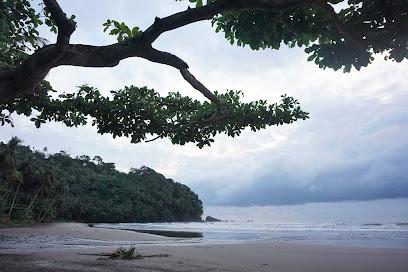
Praia Piscina
Discover the tranquil paradise of Praia Piscina, a breathtaking beach destination in São Tomé and Príncipe, perfect for relaxation and adventure.
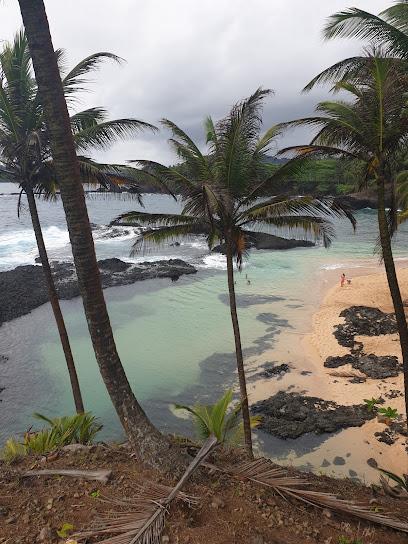
Roça Água-Izé
Discover the rich colonial history and breathtaking beauty of Roça Água-Izé, an open-air museum in São Tomé, perfect for cultural enthusiasts and nature lovers.
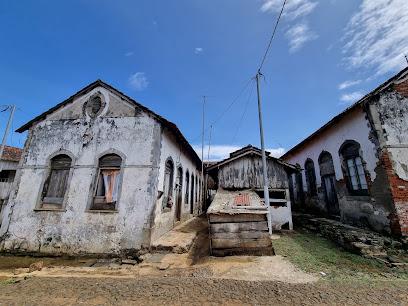
Praia Micondo
Experience the serene beauty of Praia Micondo, a stunning beach paradise in São Tomé and Príncipe, perfect for relaxation and adventure.
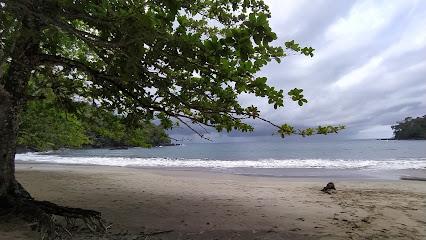
Cascata de Praia Pesqueira
Explore the stunning Cascata de Praia Pesqueira, a serene waterfall in São Tomé and Príncipe, perfect for nature lovers and photography enthusiasts.
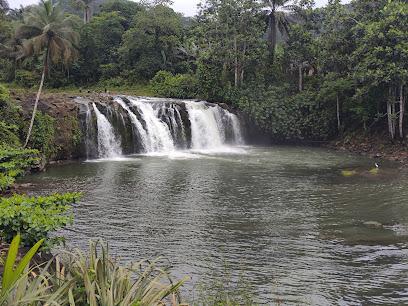
Praia Jale
Explore the tranquil shores of Praia Jale, where golden sands meet crystal-clear waters in the heart of São Tomé and Príncipe.
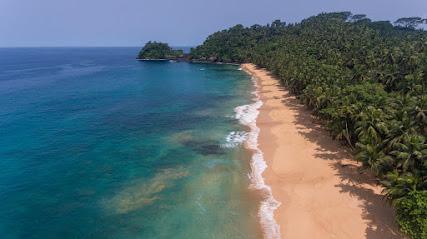
Praia Grande
Explore the tranquil beauty of Praia Grande, a stunning beach in São Tomé and Príncipe, perfect for relaxation and adventure.
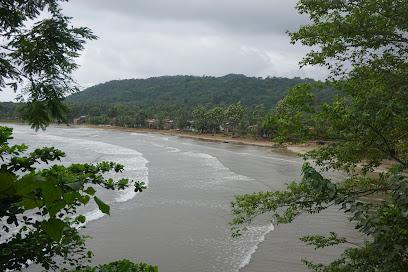
Baia das Agulhas
Explore the stunning Baia das Agulhas, a coastal gem in Anselmo de Andrade, offering breathtaking views and vibrant marine life for an unforgettable adventure.
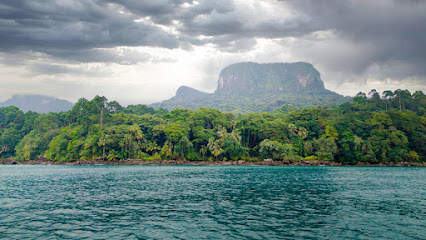
Arquivo Histórico de São Tomé e Príncipe
Explore the rich history of São Tomé e Príncipe at the Arquivo Histórico, showcasing the islands' cultural heritage through fascinating exhibits and artifacts.
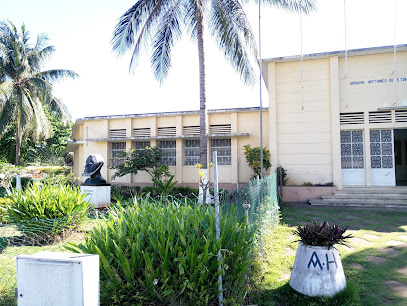
Essential places to dine
Papa-Figo
Experience authentic São Toméan cuisine at Papa-Figo – where local flavors meet warm hospitality in a vibrant setting.
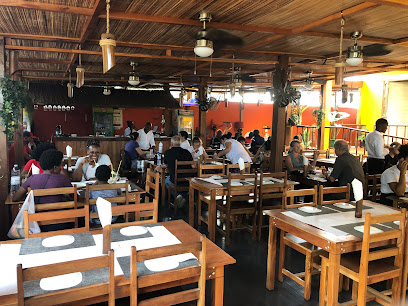
Casa Museu Almada Negreiros
Experience exquisite dining at Casa Museu Almada Negreiros in São Tomé – where culinary delights meet captivating artistry.
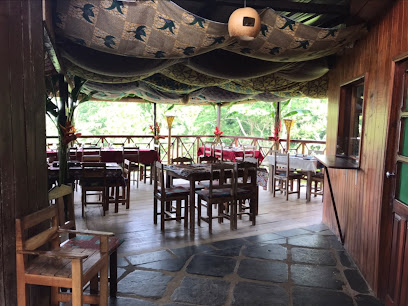
Dona Teté
Experience the rich flavors of Creole cuisine at Dona Teté in São Tomé—a culinary journey steeped in tradition.
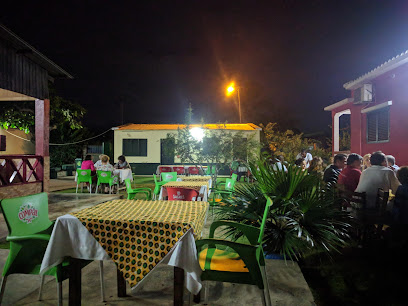
Monte Mar Restaurante São Tomé
Experience exquisite dining at Monte Mar Restaurante in São Tomé - where fresh local flavors meet breathtaking ocean views.
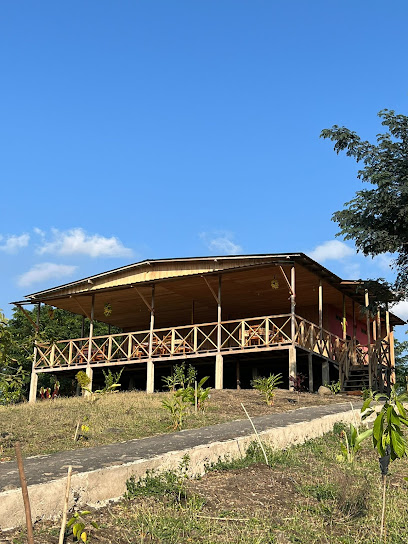
CARAMBOLA
Discover culinary excellence at CARAMBOLA in São Tomé—where local flavors meet international flair in a vibrant dining setting.
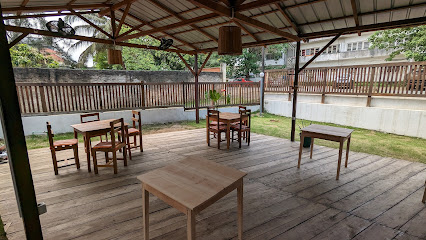
Xquizeat
Experience the vibrant flavors of São Tomé at Xquizeat, where local meets international cuisine in a warm atmosphere.
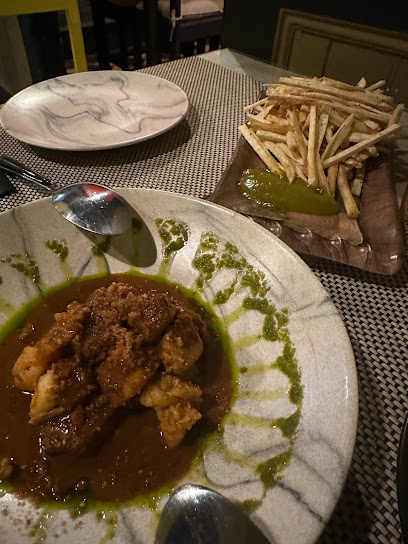
Onda Azul
Experience authentic flavors at Onda Azul in São Tomé - where local cuisine meets warm hospitality.
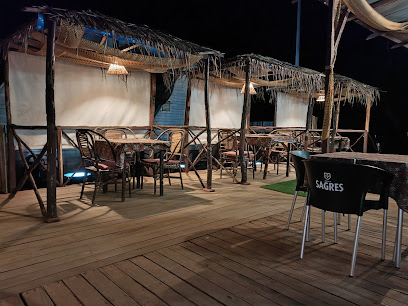
Pema Marisqueira
Discover exquisite seafood dishes at Pema Marisqueira in Guadalupe - where every meal tells a story of local tradition.
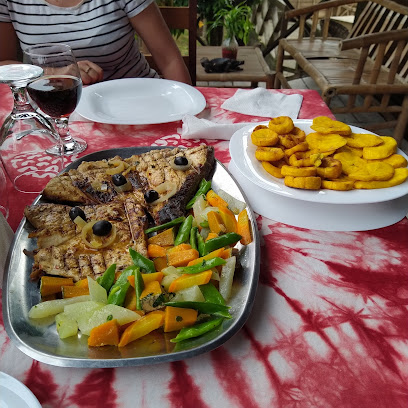
Tia Nanda
Experience authentic São Toméan cuisine at Tia Nanda – where fresh ingredients meet local tradition in a welcoming atmosphere.
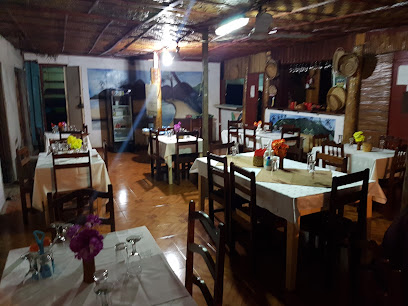
Restaurante Celva's
Experience authentic local cuisine at Restaurante Celva's in Guadalupe - where flavor meets tradition in a cozy setting.
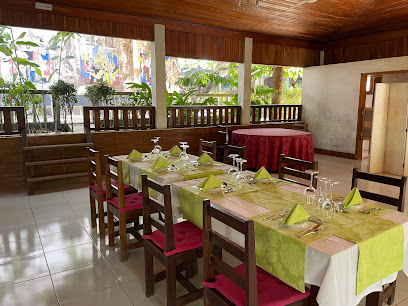
Restaurante Atlântico
Experience authentic São Toméan cuisine at Restaurante Atlântico - where every dish tells a story.
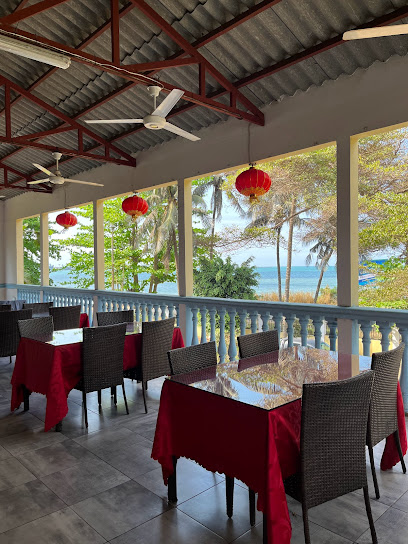
Tentadora
Experience the vibrant flavors of São Tomé at Tentadora - a culinary haven offering both local delicacies and international dishes.
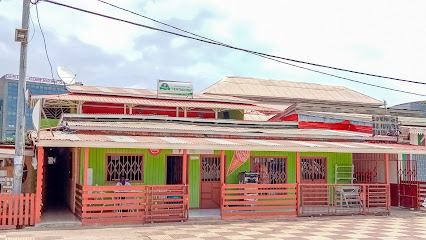
Tia Zada
Discover authentic São Toméan cuisine at Tia Zada, where every dish is a celebration of local flavors and hospitality.
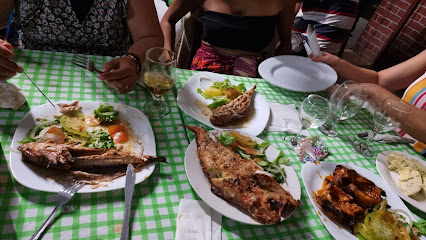
Restaurante Tia Chichinta
Discover exquisite seafood at Restaurante Tia Chichinta in ES10 – where every dish tells a story of fresh flavors and culinary passion.
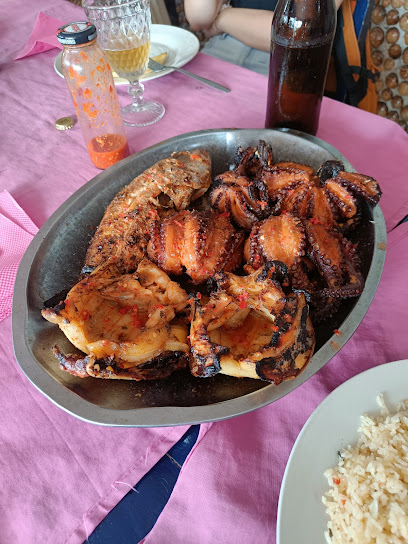
Restaurante Jardela
Experience authentic local cuisine at Restaurante Jardela in Roça Agostinho Neto - where every dish tells a story.
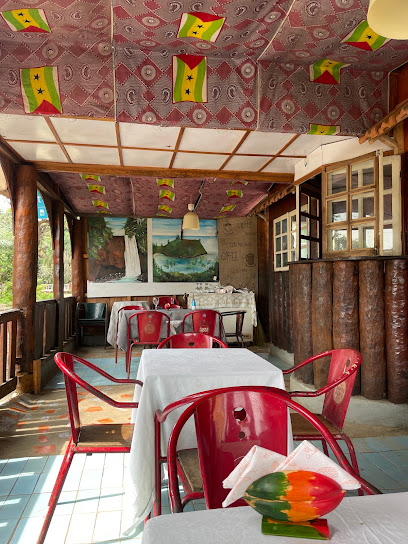
Markets, malls and hidden boutiques
Claudio Corallo - Cacao & Caffe São Tomé e Príncipe
Experience premium chocolate craftsmanship at Claudio Corallo in São Tomé e Príncipe - a paradise for chocolate lovers and enthusiasts.
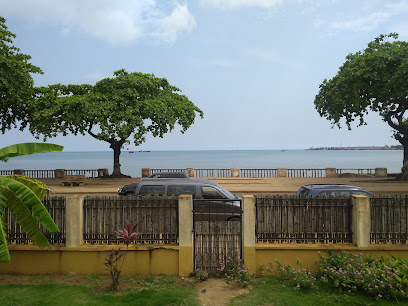
SUPER CKDO
Explore the rich flavors and everyday essentials at SUPER CKDO, the premier supermarket in São Tomé for locals and tourists alike.
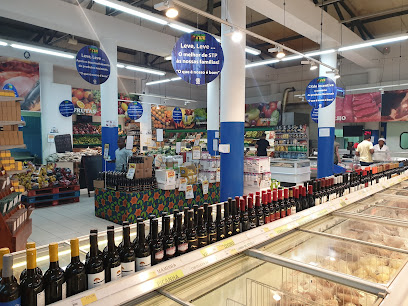
Intermar
Explore Intermar in São Tomé, a vibrant supermarket offering a rich selection of local and international products for every traveler.
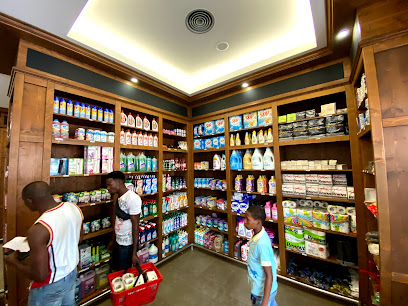
Supermercado Coconote
Explore the vibrant flavors and local products of São Tomé at Supermercado Coconote, your go-to supermarket for island essentials and culinary treasures.
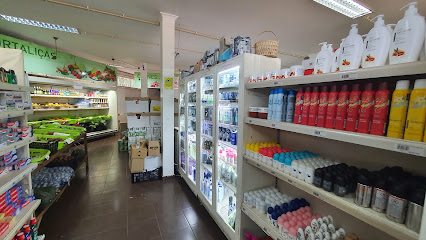
Mercado de Bobo Forro
Explore the vibrant Mercado de Bobo Forro, a hypermarket offering authentic local flavors and a lively cultural experience in Me-Zochi.
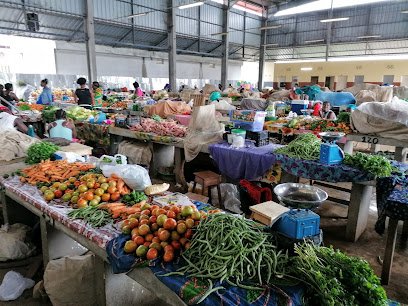
Flolikando Bakery
Discover the delightful flavors of São Tomé at Flolikando Bakery, your go-to spot for fresh bagels and a taste of local culture.
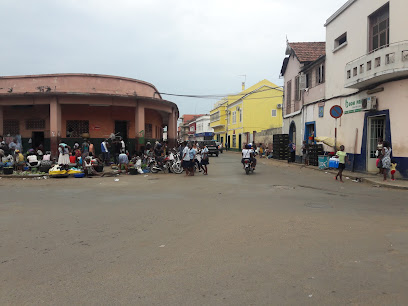
Kuá Tela
Explore Kuá Tela in São Tomé for unique souvenirs and local crafts that celebrate the island's rich culture and artistry.
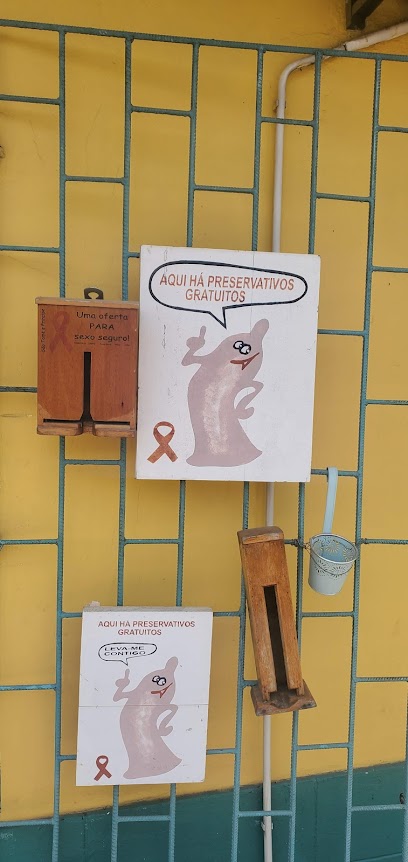
Loja do Cleyton
Explore Loja do Cleyton: Porto Alegre's hidden gem for unique gifts, showcasing the creativity and essence of Brazilian culture.
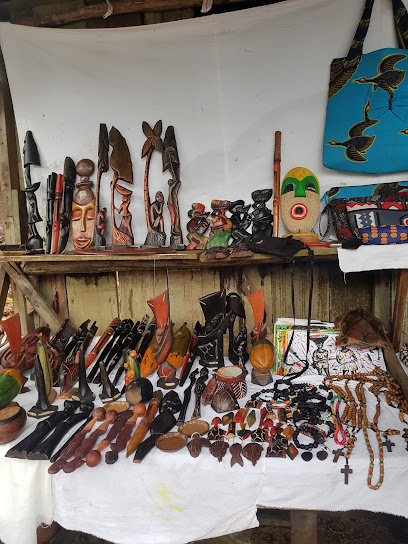
Ossobo Ecosocial
Discover the vibrant shopping experience at Ossobo Ecosocial in São Tomé, where local culture meets modern retail in a sustainable setting.
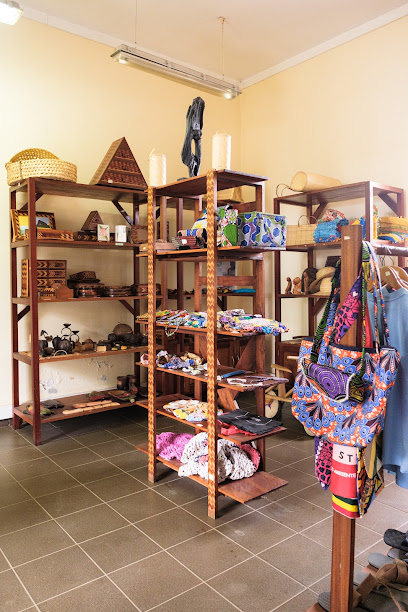
Igreja de Guadalupe
Discover the architectural grace and tranquil spirituality of Igreja de Guadalupe, a captivating Catholic church in the heart of Guadalupe.
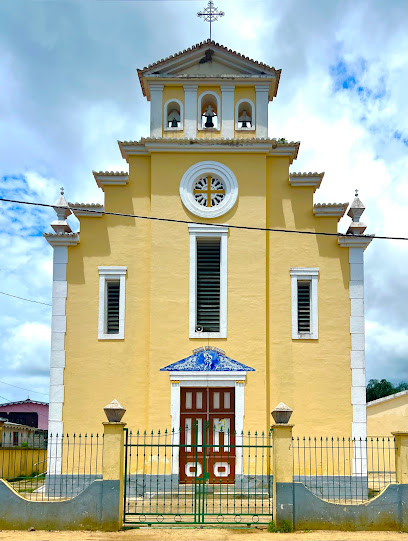
Ponto do sul
Explore Ponto do Sul, the premier gift shop for unique local crafts and souvenirs that embody the spirit of São Tomé and Príncipe.
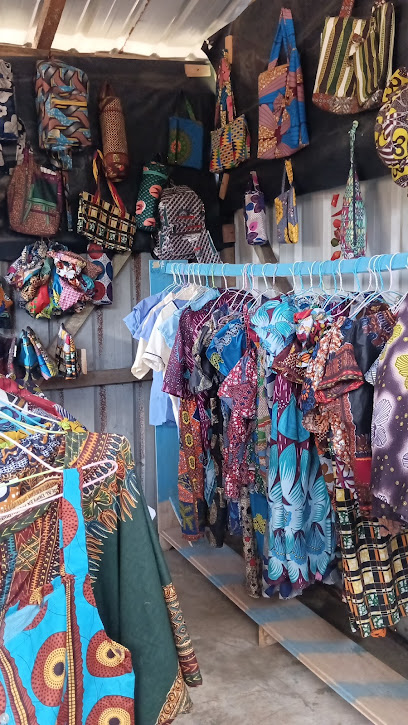
IMPANTA
Explore IMPANTA in São Tomé for unique home goods and authentic local crafts, capturing the vibrant essence of the region.
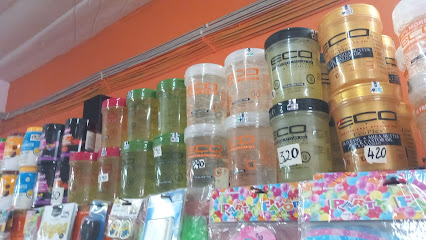
Great World Yeng Cheng
Explore Great World Yeng Cheng, São Tomé's premier Chinese supermarket for authentic Asian ingredients and culinary delights.

Mercado De Guadalupe
Experience the authentic flavors and vibrant culture of Guadalupe at Mercado De Guadalupe, a local grocery store bursting with fresh produce and handmade goods.
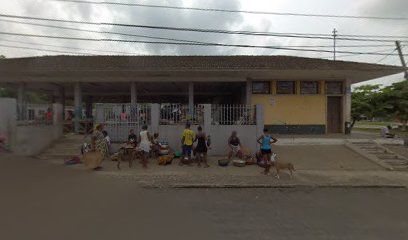
CYBER Computer
Explore CYBER Computer in São Tomé: your go-to destination for the latest electronics and unique shopping experiences.
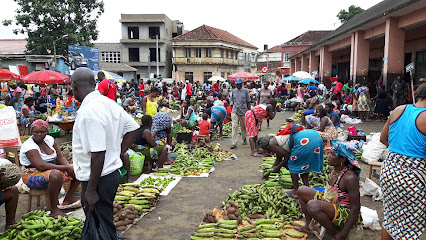
Essential bars & hidden hideouts
Pico Mocambo
Experience the vibrant nightlife at Pico Mocambo, São Tomé's top bar, offering delicious cocktails, live music, and a welcoming atmosphere for all.
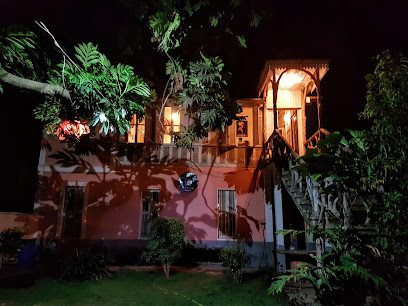
90 Graus Esplanada Bar
Experience the vibrant flavors of São Tomé at 90 Graus Esplanada Bar, where every pizza tells a story of culinary delight.
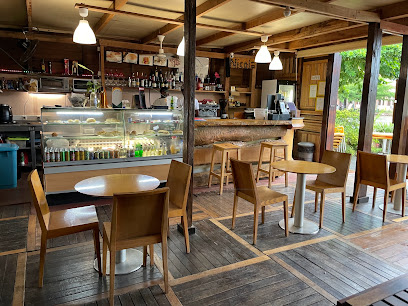
COCONUT'S BAR
Discover the flavors of Ribeira Afonso at Coconut's Bar, where local cuisine meets a tropical paradise in a vibrant atmosphere.
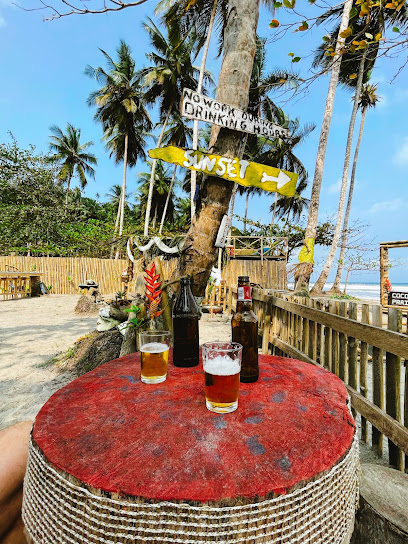
Zima restaurante Bar
Discover the vibrant flavors and lively atmosphere of Zima Restaurante Bar, a culinary gem in São Tomé, perfect for food lovers and cocktail enthusiasts.
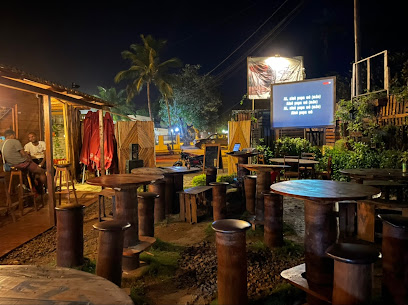
Xquizeat
Discover the flavors of São Tomé at Xquizeat, where local ingredients meet culinary creativity for an unforgettable dining experience.
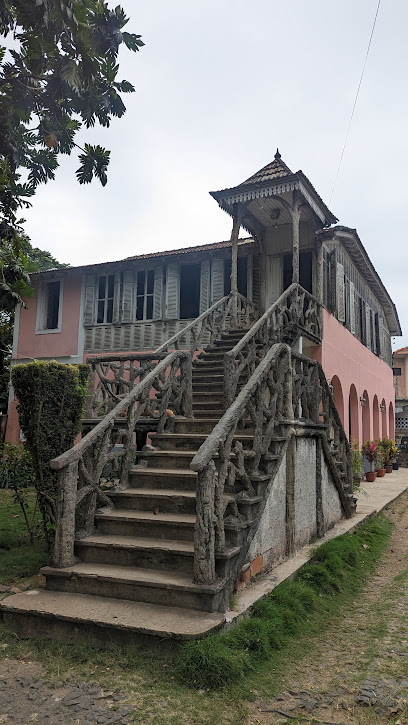
BBC/Abaya da Bôo
Experience the vibrant nightlife of São Tomé at BBC/Abaya da Bôo, where local culture meets creative cocktails in a lively bar atmosphere.
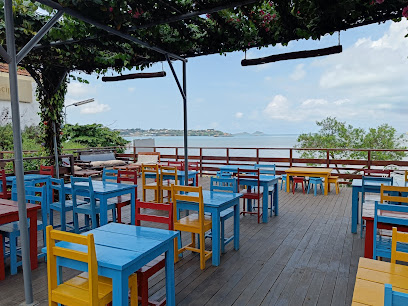
Pema Marisqueira
Discover the essence of Guadalupe's coastal cuisine at Pema Marisqueira, where every dish is a celebration of fresh, local seafood.
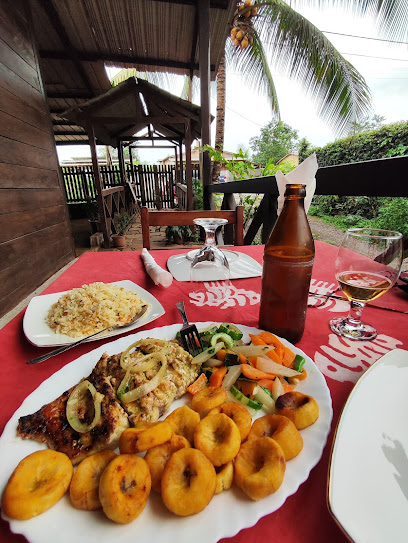
Restaurante Celva's
Discover the culinary delights of Restaurante Celva's in Guadalupe, where local flavors meet warm hospitality for an unforgettable dining experience.
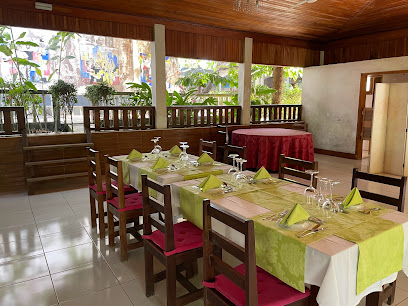
Fundador
Discover Fundador Bar in São Tomé: A lively spot where locals and tourists unite over delicious cocktails and warm ambiance.
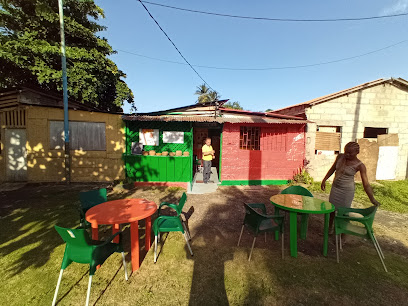
Caipirinha Tropical
Discover the vibrant cocktail culture of São Tomé at Caipirinha Tropical, where refreshing drinks and lively ambiance await every visitor.
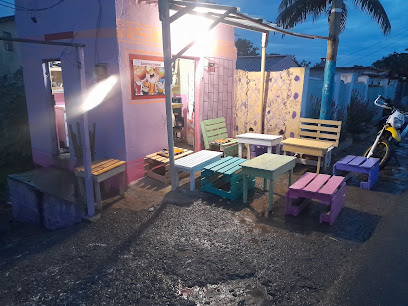
Bar cantinho dos silva Água Boia
Experience the vibrant nightlife of São Tomé at Bar Cantinho dos Silva, a lively bar offering local drinks and a welcoming atmosphere.
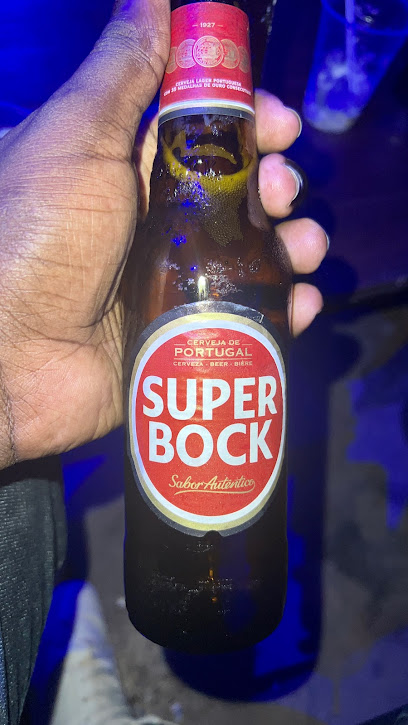
Bar De Tia Rute
Experience authentic local flavors at Bar De Tia Rute, a beloved restaurant in Ribeira Afonso, perfect for tourists seeking culinary delights.
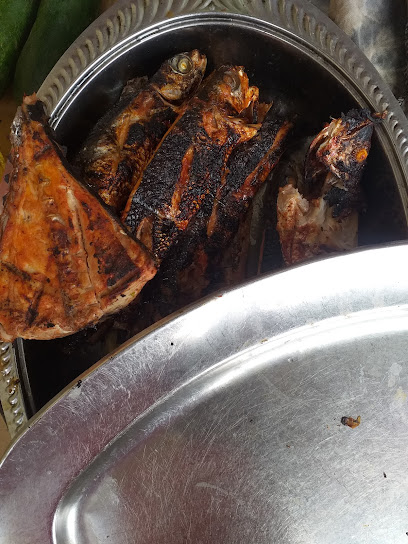
Vilma casa de Petiscos
Experience the authentic flavors of São Tomé at Vilma Casa de Petiscos, where local cuisine meets warm hospitality in a charming setting.
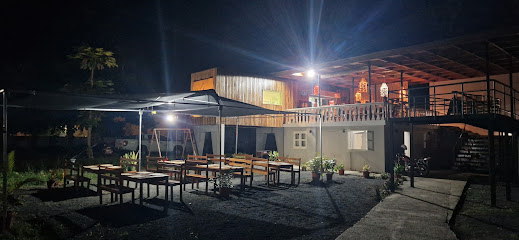
O Boteco
Discover the vibrant flavors of São Tomé at O Boteco, where local cuisine meets a welcoming atmosphere for an unforgettable dining experience.
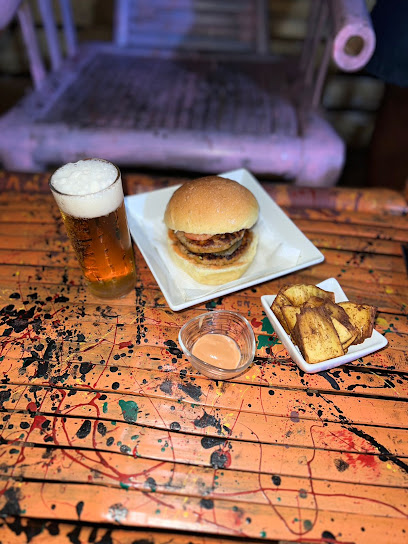
Discoteca Africana
Unleash your inner dancer at Discoteca Africana, São Tomé's vibrant disco club, where the night comes alive with music and festivities!
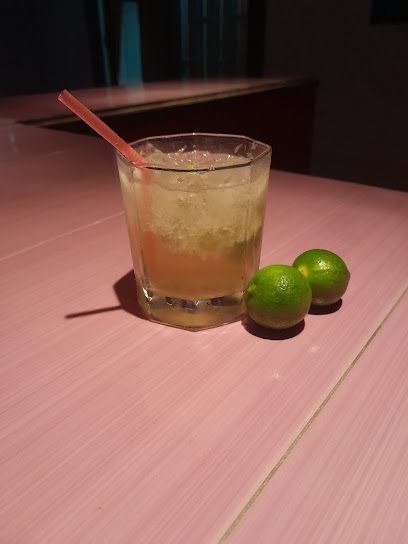
Local Phrases
-
- HelloOlá
[oh-lah] - GoodbyeAdeus
[ah-deh-oos] - YesSim
[seem] - NoNão
[na-oh] - Please/You're welcomePor favor/De nada
[pohr fah-vohr/dee nah-dah] - Thank youObrigado
[oh-bree-gah-doh] - Excuse me/SorryDesculpa
[dehs-kool-pah] - How are you?Como estás?
[koh-moh ehs-tahs] - Fine. And you?Estou bem. E tu?
[ehs-toh-oo behn. eh too] - Do you speak English?Falas inglês?
[fah-lahs een-glehsh] - I don't understandNão entendo
[na-oh ehn-tehn-doh]
- HelloOlá
-
- I'd like to see the menu, pleaseGostaria de ver o menu, por favor
[goh-stah-ee-ah deh vehr oh meh-noo, poor fah-vohr] - I don't eat meatNão como carne
[na-oh koh-moh kahr-neh] - Cheers!Saúde!
[sah-oo-deh] - I would like to pay, pleaseGostaria de pagar, por favor
[goh-stah-ee-ah deh pah-gahr, poor fah-vohr]
- I'd like to see the menu, pleaseGostaria de ver o menu, por favor
-
- Help!Socorro!
[soh-koh-roh] - Go away!Vai-te embora!
[vahy-teh ehm-boh-rah] - Call the Police!Chama a polícia!
[shah-mah ah poh-lee-see-ah] - Call a doctor!Chama um médico!
[shah-mah oom meh-dee-koo] - I'm lostEstou perdido
[ehs-toh pehr-dee-doh] - I'm illEstou doente
[ehs-toh doo-ehn-teh]
- Help!Socorro!
-
- I'd like to buy...Gostaria de comprar...
[goh-stah-ee-ah deh kohm-prahr] - I'm just lookingEstou só a ver
[ehs-toh soh ah vehr] - How much is it?Quanto custa?
[kwan-toh koos-tah] - That's too expensiveIsso é muito caro
[ee-soh eh moo-ee-toh kah-roh] - Can you lower the price?Podes baixar o preço?
[poh-dehs bahy-shahr oh preh-soh]
- I'd like to buy...Gostaria de comprar...
-
- What time is it?Que horas são?
[keh oh-rahz sah-oh] - It's one o'clockÉ uma hora
[eh oo-mah oh-rah] - Half past (10)Meio dia (10)
[may-oo dee-ah (deh-sh ee-oo)] - MorningManhã
[mah-nyah] - AfternoonTarde
[tahr-deh] - EveningNoite
[noy-teh] - YesterdayOntem
[ohn-tehm] - TodayHoje
[oh-zheh] - TomorrowAmanhã
[ah-mah-nyah] - 1Um
[oom] - 2Dois
[doh-ees] - 3Três
[trehs] - 4Quatro
[kwah-troh] - 5Cinco
[seeng-koh] - 6Seis
[seh-ees] - 7Sete
[seh-teh] - 8Oito
[oy-toh] - 9Nove
[noh-veh] - 10Dez
[dehs]
- What time is it?Que horas são?
-
- Where's a/the...?Onde está...?
[ohn-deh ehs-tah] - What's the address?Qual é a morada?
[kwahl eh ah moh-rah-dah] - Can you show me (on the map)?Podes mostrar-me (no mapa)?
[poh-dehs moh-strahr-meh (noo mah-pah)] - When's the next (bus)?Quando é o próximo (autocarro)?
[kwahn-doh eh oo proh-ksih-moh (ow-too-kah-roo)] - A ticket (to ....)Um bilhete (para ....)
[oom bee-lye-teh (pah-rah)]
- Where's a/the...?Onde está...?
History of Guadalupe
-
Guadalupe, located on the northern coast of São Tomé Island, has its roots in the early days of Portuguese colonization in the 15th century. The Portuguese explorers, led by João de Santarém and Pêro Escobar, first discovered the island in 1470. Subsequently, it became a crucial settlement for sugar cane plantations, which were primarily worked by African slaves. The town of Guadalupe grew as a result of this colonial agricultural expansion.
-
During the 16th and 17th centuries, Guadalupe became an essential part of São Tomé's booming sugar industry. The fertile volcanic soil and tropical climate were ideal for sugar cane cultivation, making the island one of the world's largest sugar producers. The economy of Guadalupe thrived as sugar mills and processing plants were established, employing a large enslaved African labor force.
-
By the late 17th century, the sugar industry in Guadalupe began to decline due to competition from Brazilian sugar plantations and the depletion of soil nutrients. Additionally, frequent slave revolts and harsh working conditions led to instability. The decline of sugar production marked a significant shift in the town's economic landscape, prompting a transition to other crops such as cocoa and coffee.
-
In the 19th century, Guadalupe experienced a resurgence with the introduction of cocoa and coffee plantations. The island's climate and soil proved perfect for these crops, and São Tomé and Príncipe soon became one of the world's largest cocoa producers. The town of Guadalupe played a central role in this agricultural boom, with many plantations established in its vicinity, contributing significantly to the island's economy.
-
The mid-20th century was marked by growing demands for independence from Portuguese colonial rule. Guadalupe, like other parts of São Tomé and Príncipe, became involved in the nationalist movement. The local population's desire for self-governance culminated in the country's independence on July 12, 1975. The transition from a colonial settlement to an independent town brought significant social and political changes to Guadalupe.
-
Today, Guadalupe is a small but vibrant town that reflects its rich history and cultural heritage. The remnants of colonial architecture, such as old plantation houses and churches, provide a glimpse into its past. The local economy is now diversified, with agriculture, fishing, and tourism playing vital roles. Cultural festivals and traditions continue to thrive, preserving the town's unique identity within São Tomé and Príncipe.
Guadalupe Essentials
-
Guadalupe is a town in the Lobata District of São Tomé and Príncipe. The nearest international airport is São Tomé International Airport (TMS), located approximately 20 kilometers to the southeast of Guadalupe. From the airport, you can take a taxi or a pre-arranged shuttle to Guadalupe. The journey by road typically takes around 30-40 minutes. There are no direct public transportation options from the airport to Guadalupe, so arranging private transportation is advisable.
-
Guadalupe is a small town, and many of its attractions are within walking distance. For longer trips, local taxis are readily available and relatively inexpensive. Public buses and minibuses (known as 'Hiaces') operate within the town and connect to nearby villages and the capital, São Tomé. Renting a car is another convenient option for exploring the surrounding areas at your own pace. Bicycles and motorbikes can also be rented for shorter distances and a more immersive local experience.
-
The official currency in São Tomé and Príncipe is the São Tomé and Príncipe Dobra (STN). Credit cards are accepted in some hotels, restaurants, and shops, but it is advisable to carry cash, especially in smaller establishments and rural areas. ATMs are available in São Tomé, but may be limited in Guadalupe, so it is wise to withdraw sufficient cash before heading to the town. Euros are also widely accepted, but it's always best to have local currency for smaller transactions.
-
Guadalupe is generally a safe destination for tourists. However, like any travel destination, it is advisable to take standard precautions. Avoid walking alone at night in unfamiliar areas and keep an eye on your belongings in crowded places. While crime rates are relatively low, petty theft can occur, so stay vigilant and aware of your surroundings. There are no specific high-crime areas targeting tourists, but always exercise common sense and caution.
-
In case of emergency, dial 112 for immediate assistance. The local police station and medical facilities are available in Guadalupe, but for more serious medical issues, you may need to travel to São Tomé. It is recommended to have travel insurance that covers medical emergencies. For minor health issues, there are pharmacies in the town where you can purchase over-the-counter medications. Make sure to carry a basic first-aid kit and any necessary prescription medications.
-
Fashion: Do dress modestly, especially when visiting religious sites. Avoid wearing revealing clothing. Religion: Do respect local customs and traditions. Always cover your head and dress conservatively when entering churches. Public Transport: Do be respectful and give up your seat to elderly passengers. Don’t eat or drink on public transport. Greetings: Do greet people with a handshake and a warm smile. It is customary to greet with 'Bom dia' (Good morning), 'Boa tarde' (Good afternoon), or 'Boa noite' (Good evening). Eating & Drinking: Do try local delicacies and accept food offerings graciously. Don’t refuse hospitality, as it is considered impolite.
-
To experience Guadalupe like a local, visit the town's markets where you can buy fresh produce and traditional goods. Engage with locals, as they are often friendly and willing to share stories about the town’s history and culture. Don’t miss visiting the beautiful beaches nearby, such as Praia das Conchas. For a unique experience, explore the local cocoa plantations and learn about the island’s rich history in cocoa production. Enjoy the local music and dance performances, which often take place during festivals and community events.
Trending Landmark in Guadalupe
-
Papa-Figo
-
Omali São Tomé
-
Saint Nicholas Waterfall
-
Equator Landmark
-
Sao Tome Island
-
Jardim Botânico do Bom Sucesso
-
Claudio Corallo - Cacao & Caffe São Tomé e Príncipe
-
Praia das Sete Ondas
-
São Sebastião Museum
-
Monte Mar Restaurante São Tomé
-
90 Graus Esplanada Bar
-
Aeroporto Internacional de São Tomé e Príncipe
-
Praia dos Tamarindos
-
São Tomé Paradise Tours
-
Roça Água-Izé
Nearby Cities to Guadalupe
-
Things To Do in Neves
-
Things To Do in Trindade
-
Things To Do in Sao Tome City
-
Things To Do in Ribeira Afonso
-
Things To Do in Santa Catarina
-
Things To Do in Angolares
-
Things To Do in Santo Antonio
-
Things To Do in Libreville
-
Things To Do in Mbini
-
Things To Do in Luba
-
Things To Do in Lambaréné
-
Things To Do in Malabo
-
Things To Do in Kribi
-
Things To Do in Limbe
-
Things To Do in Port Harcourt






